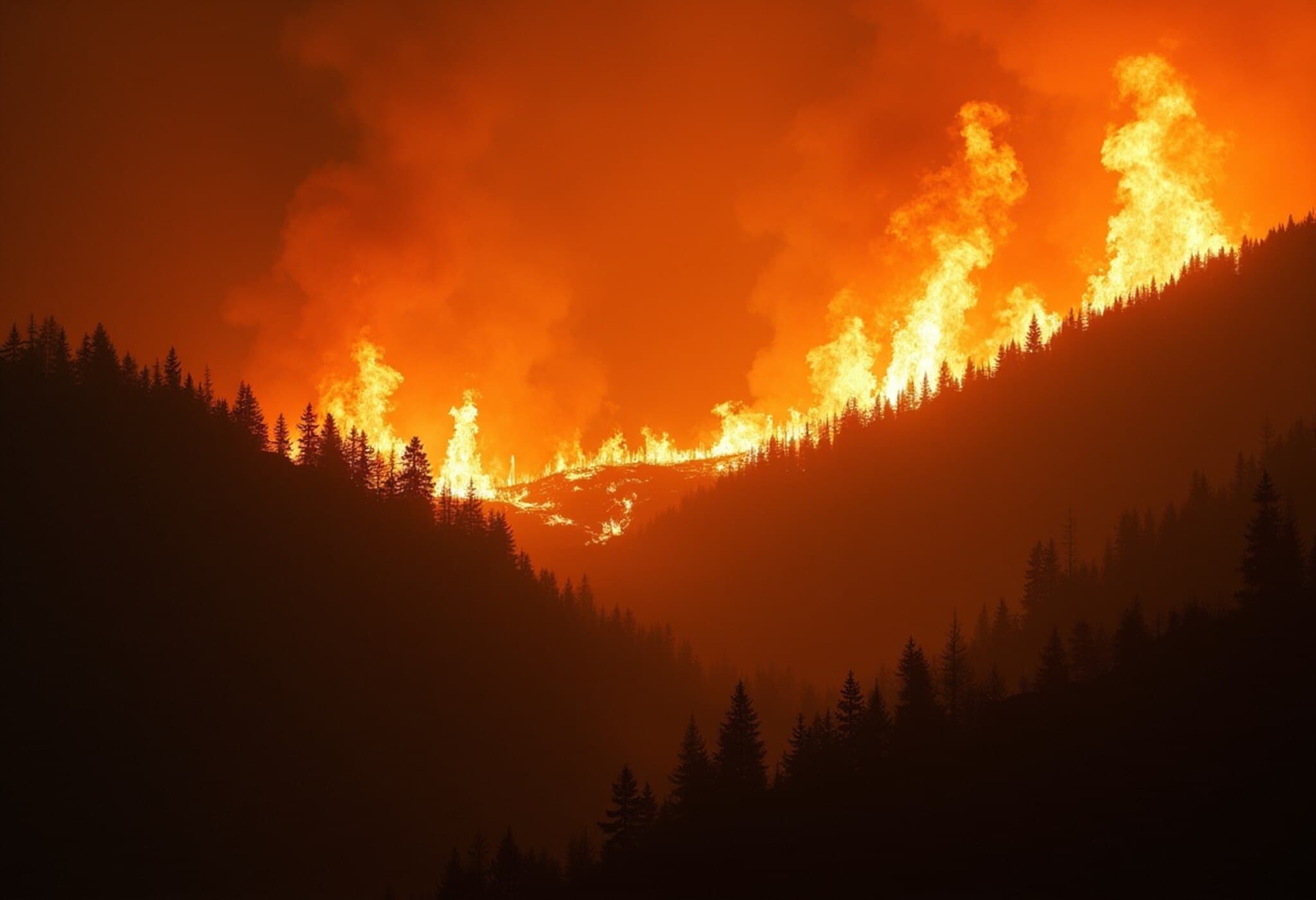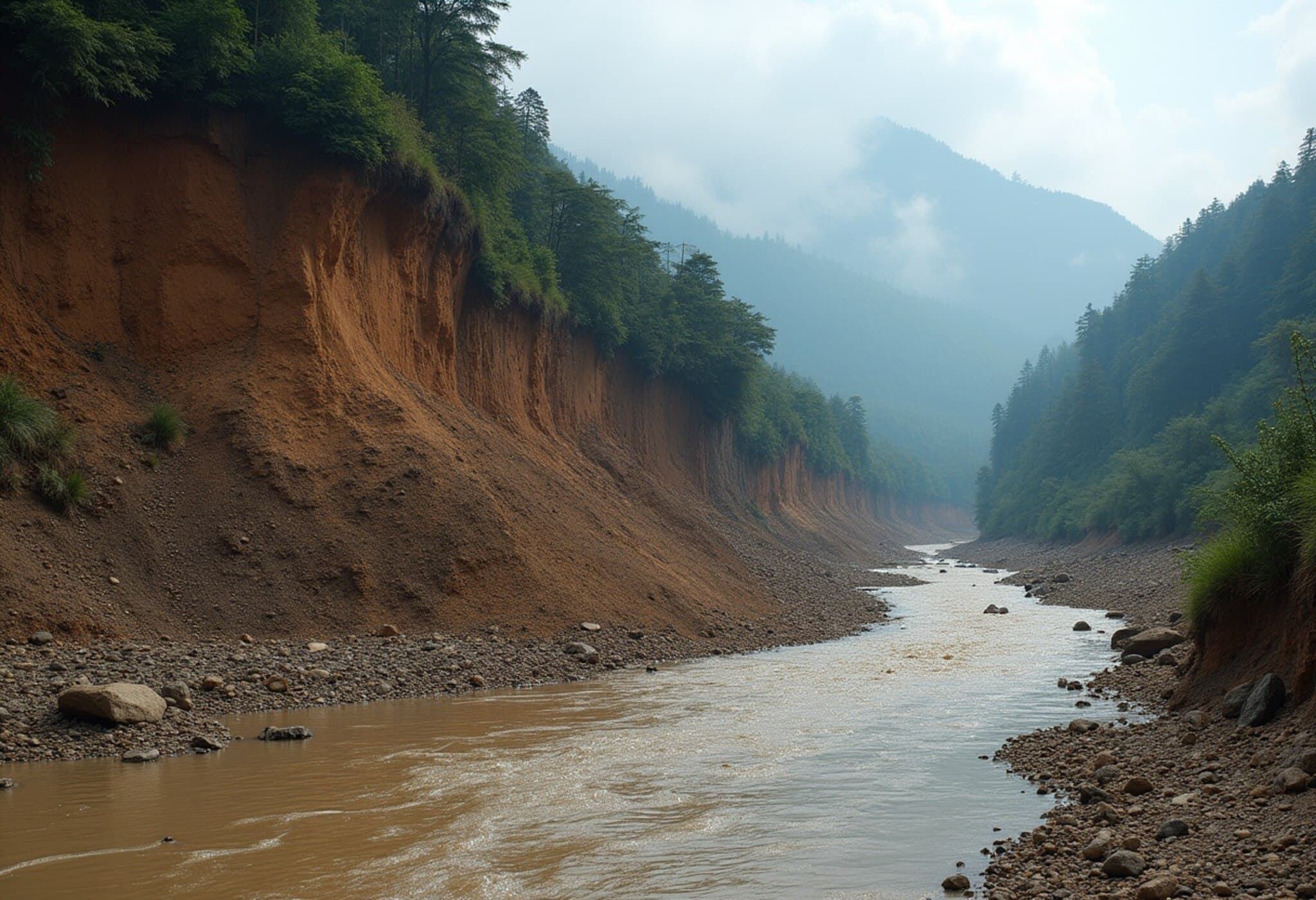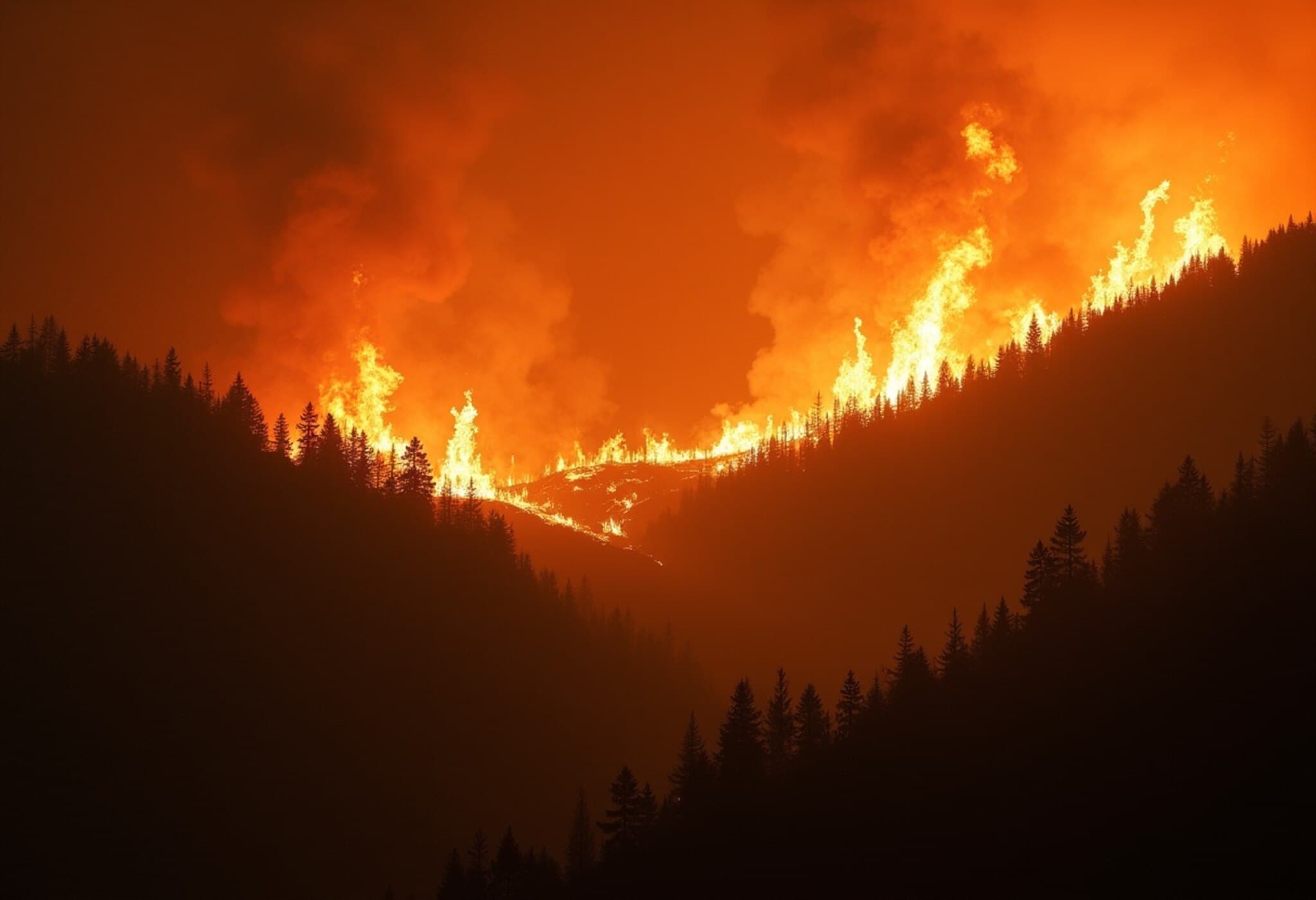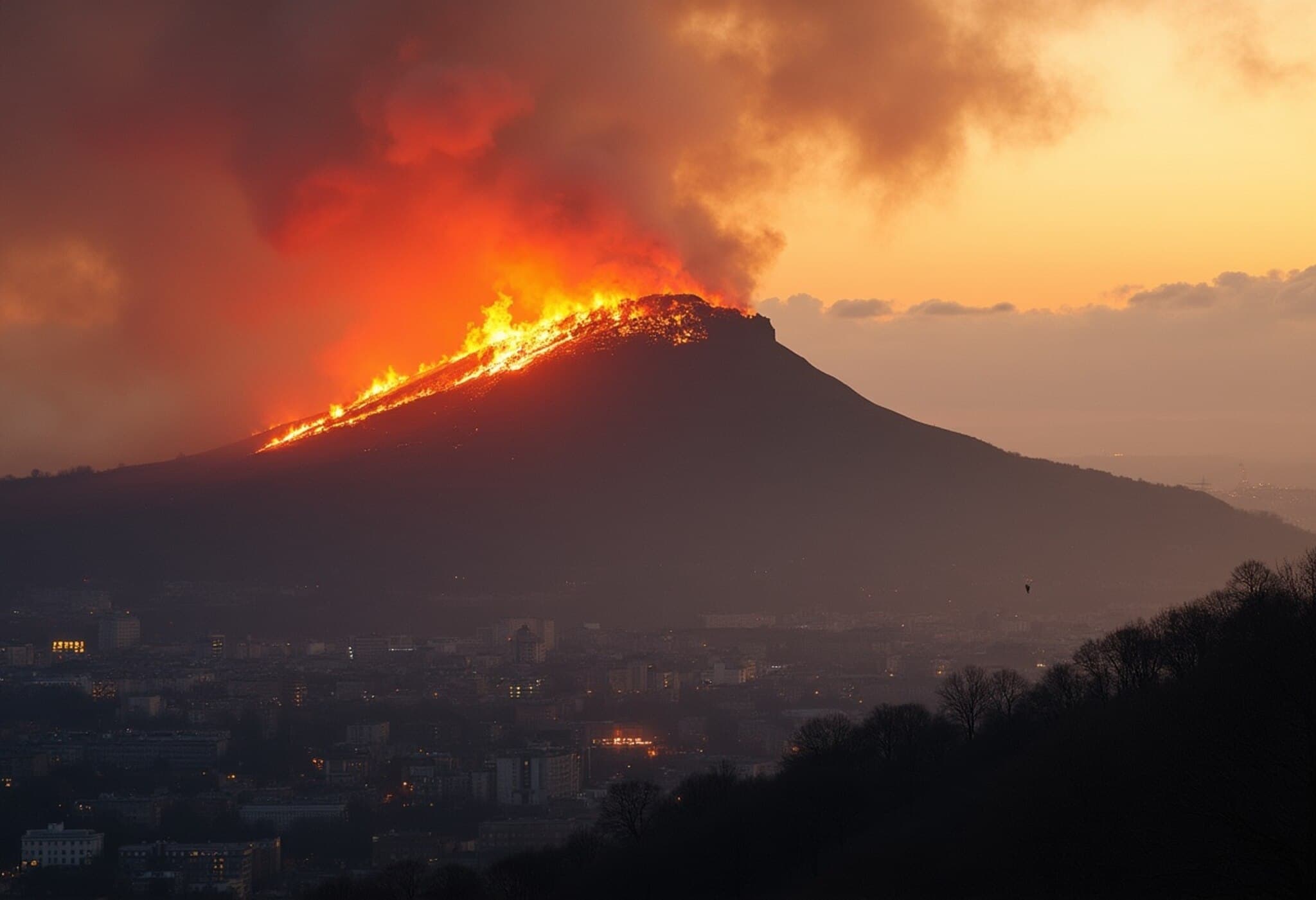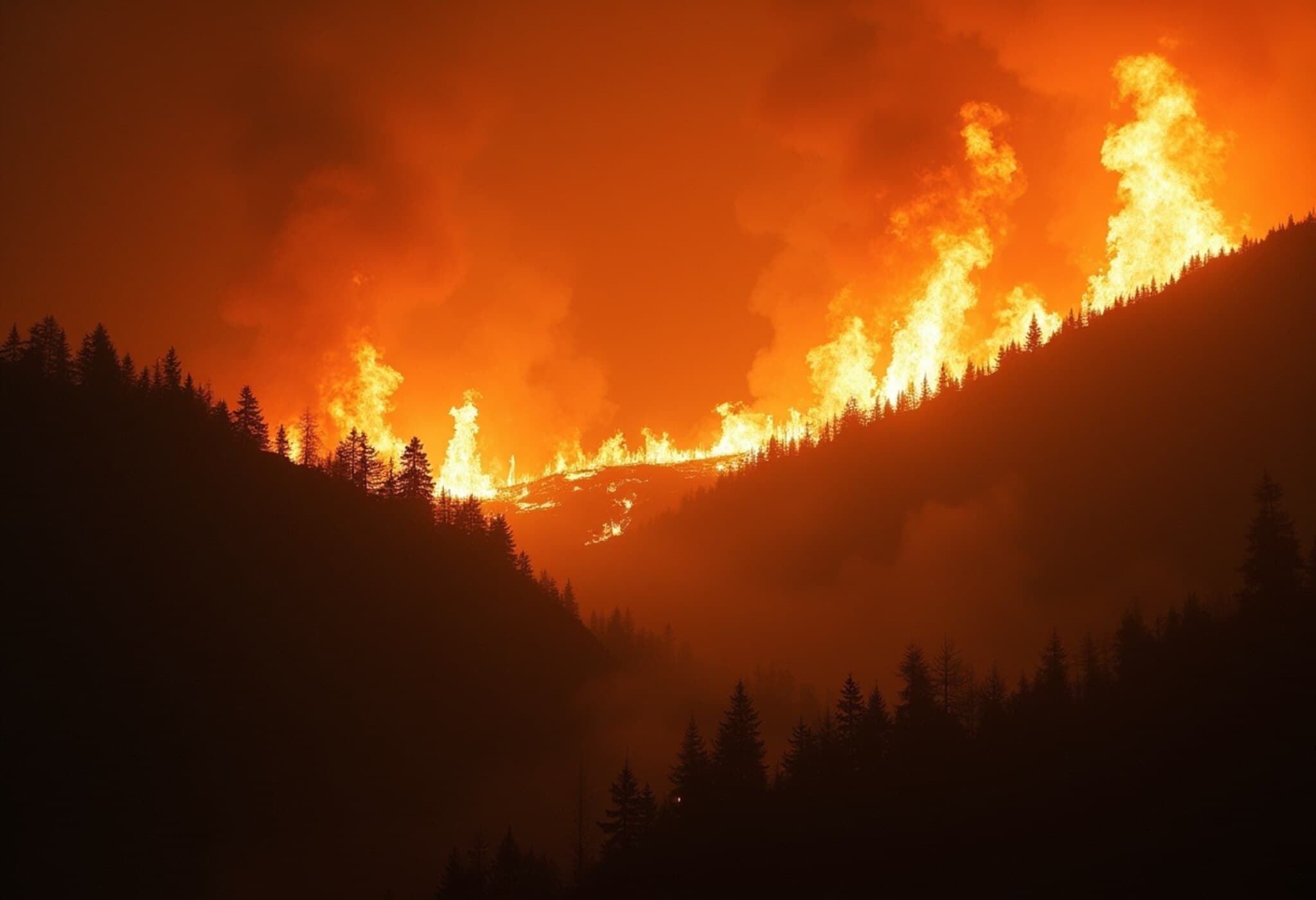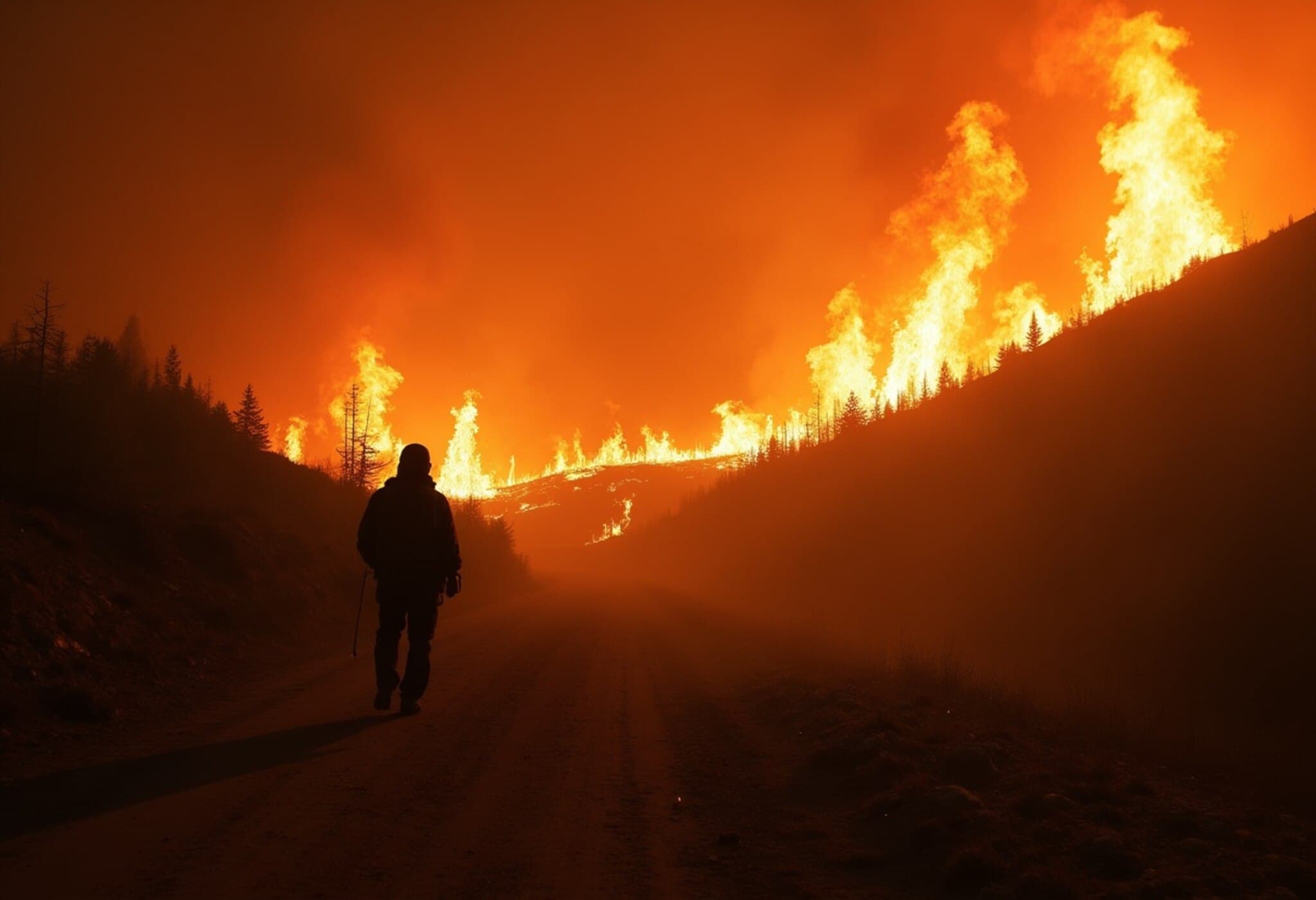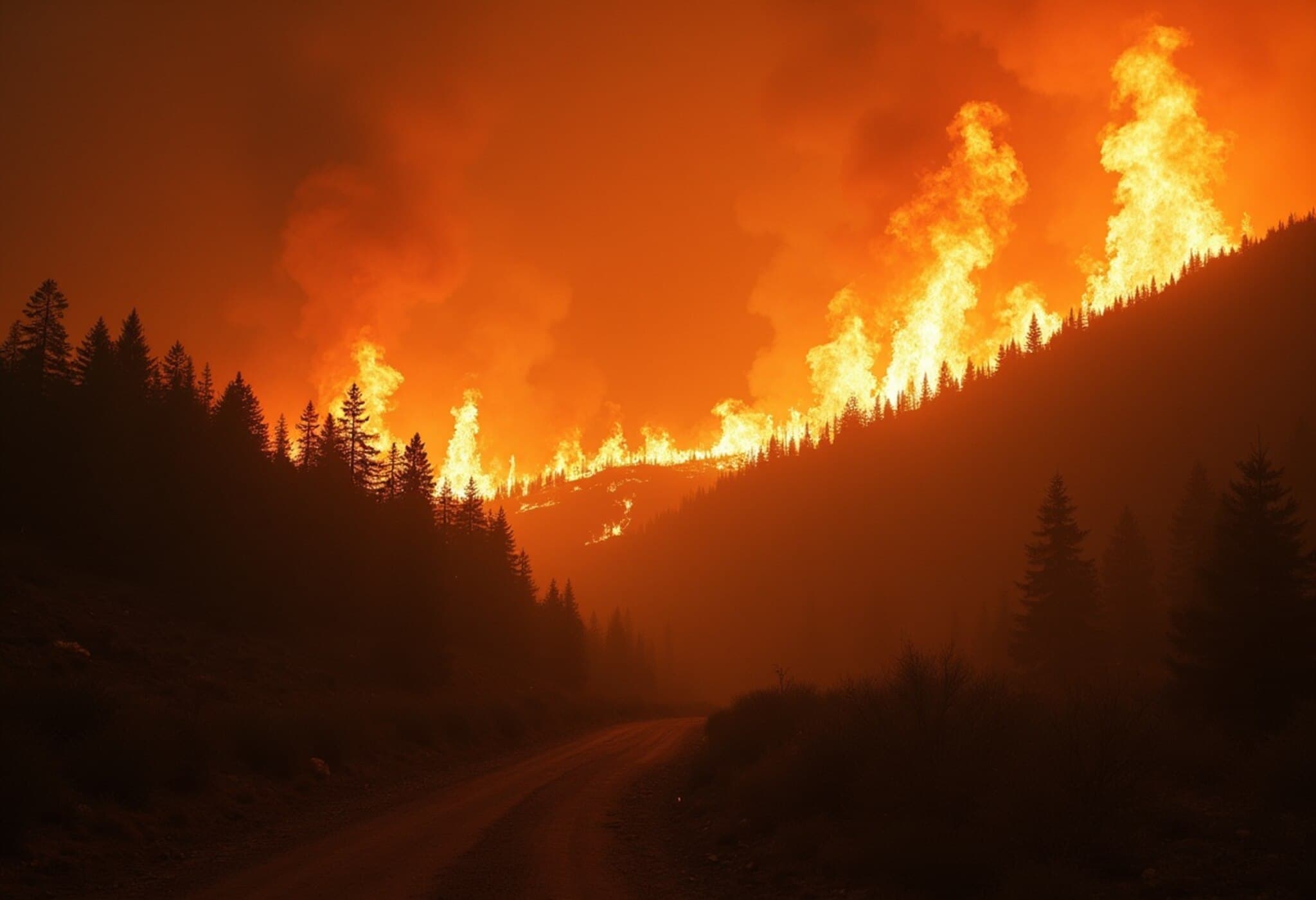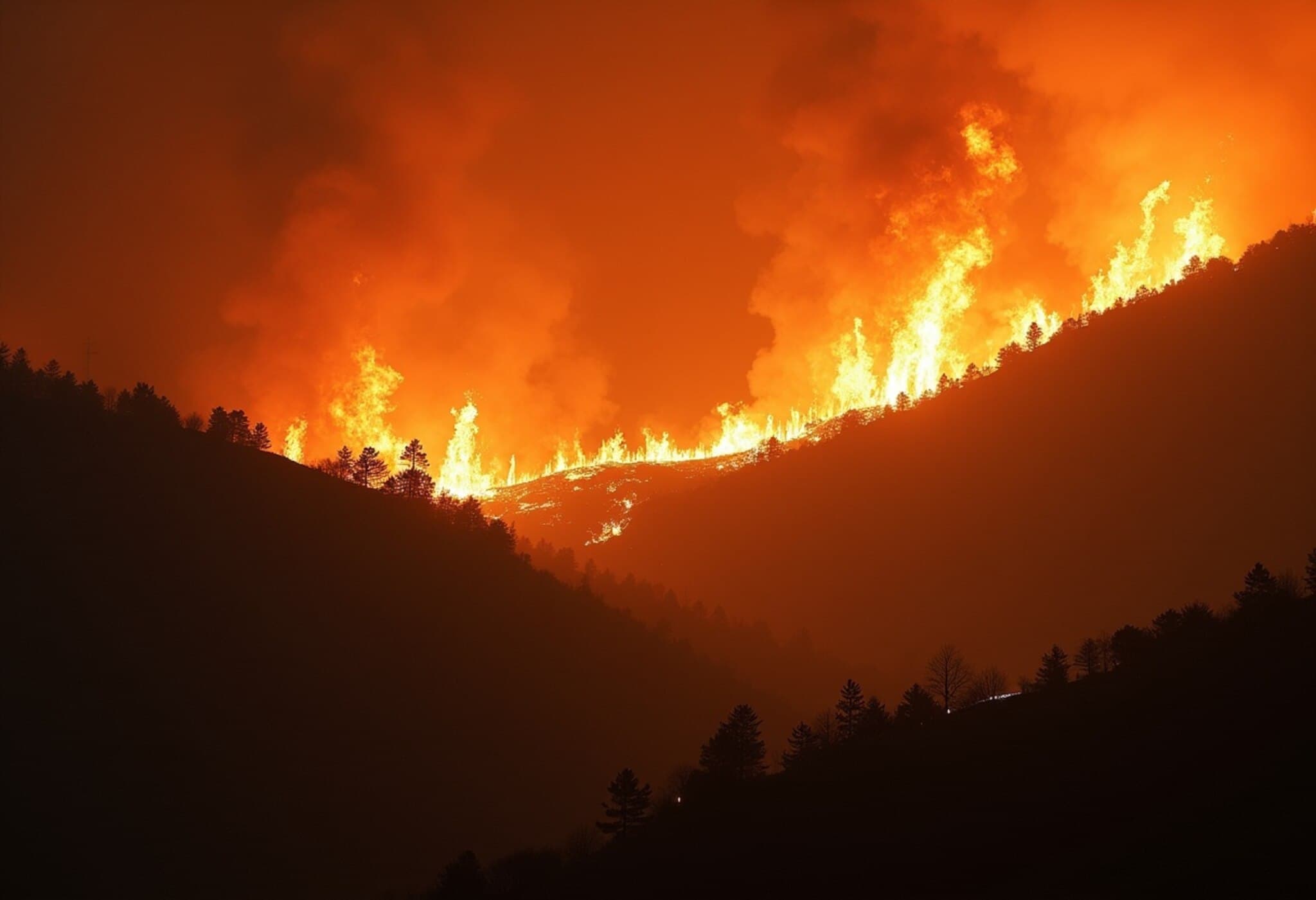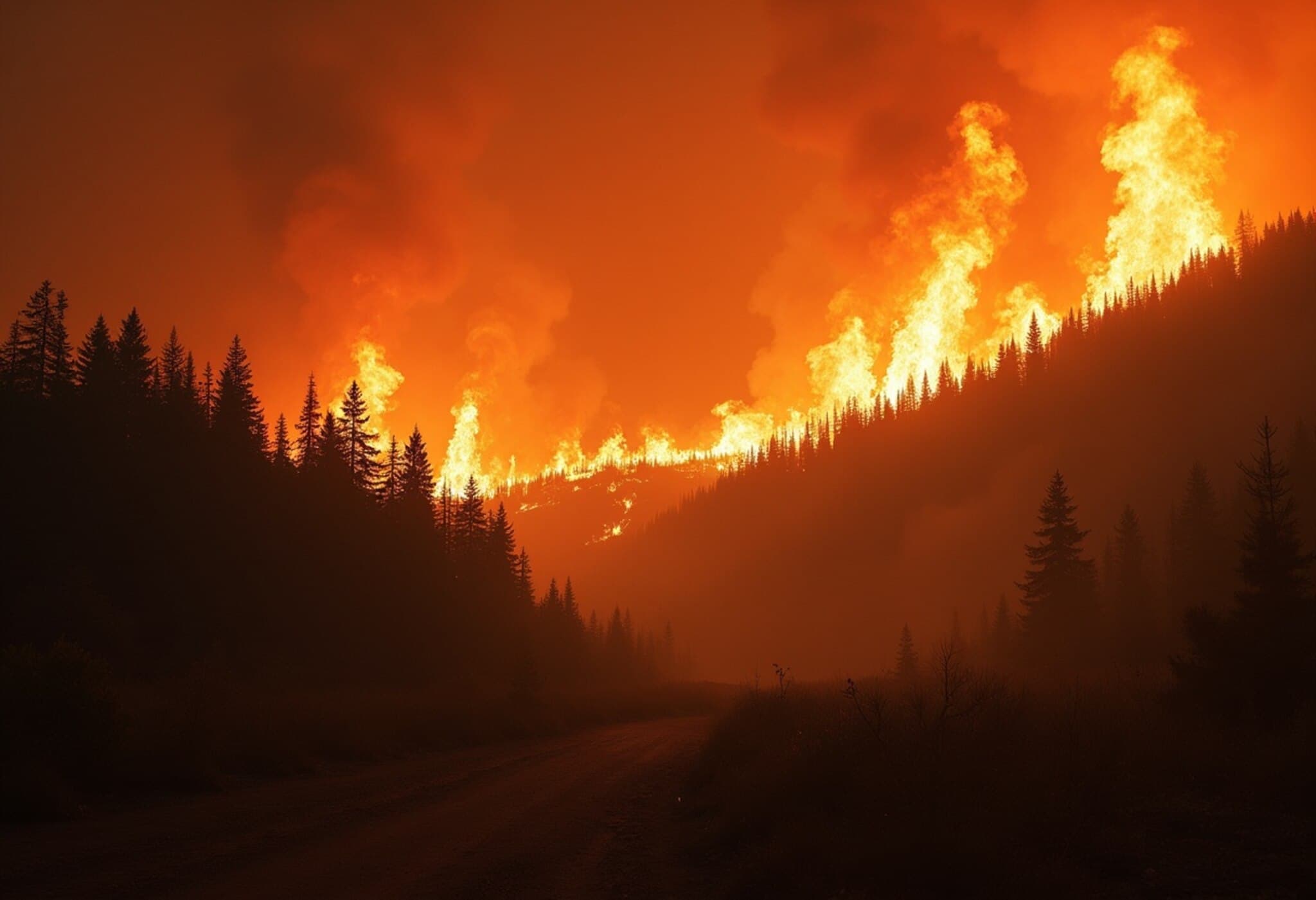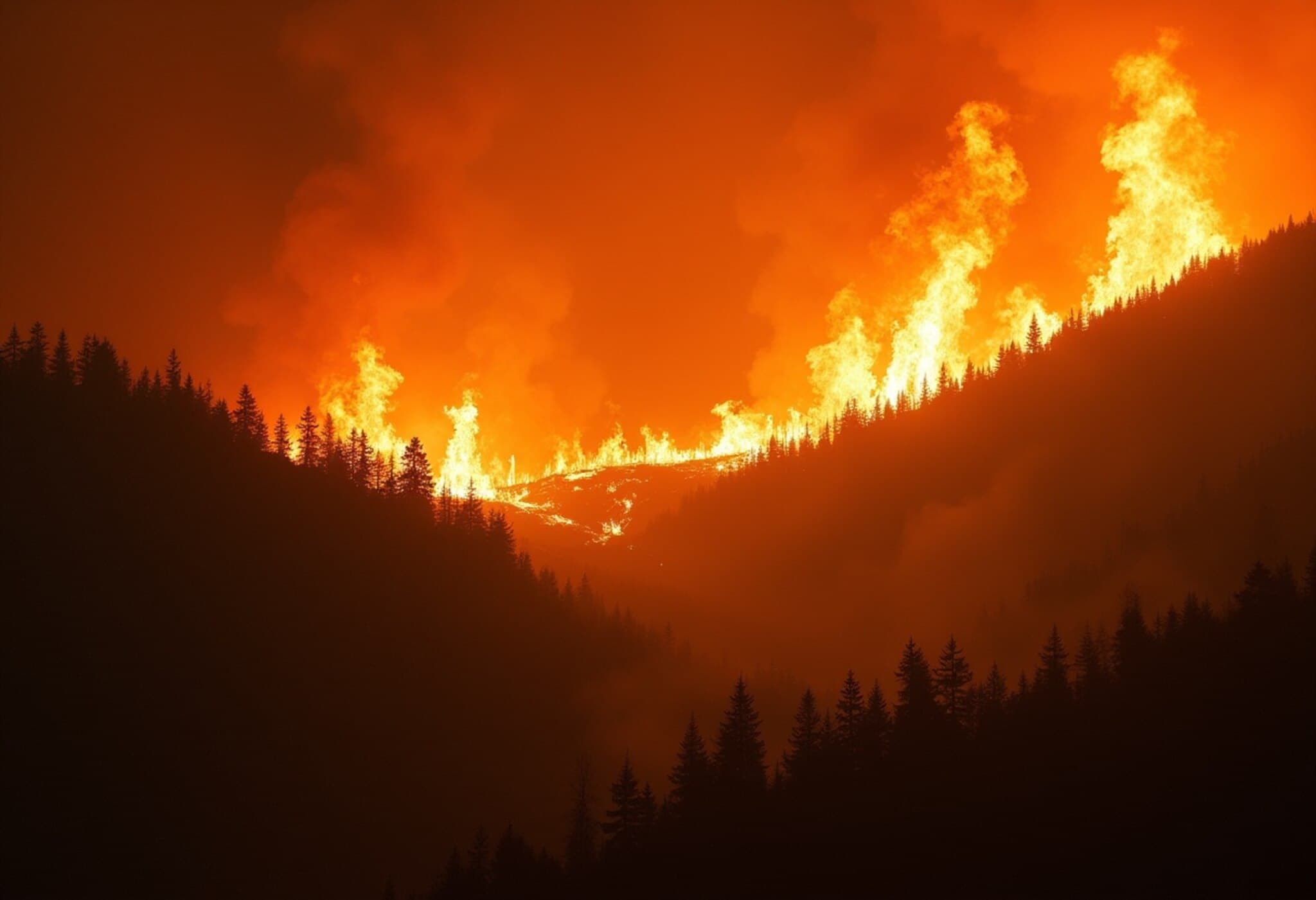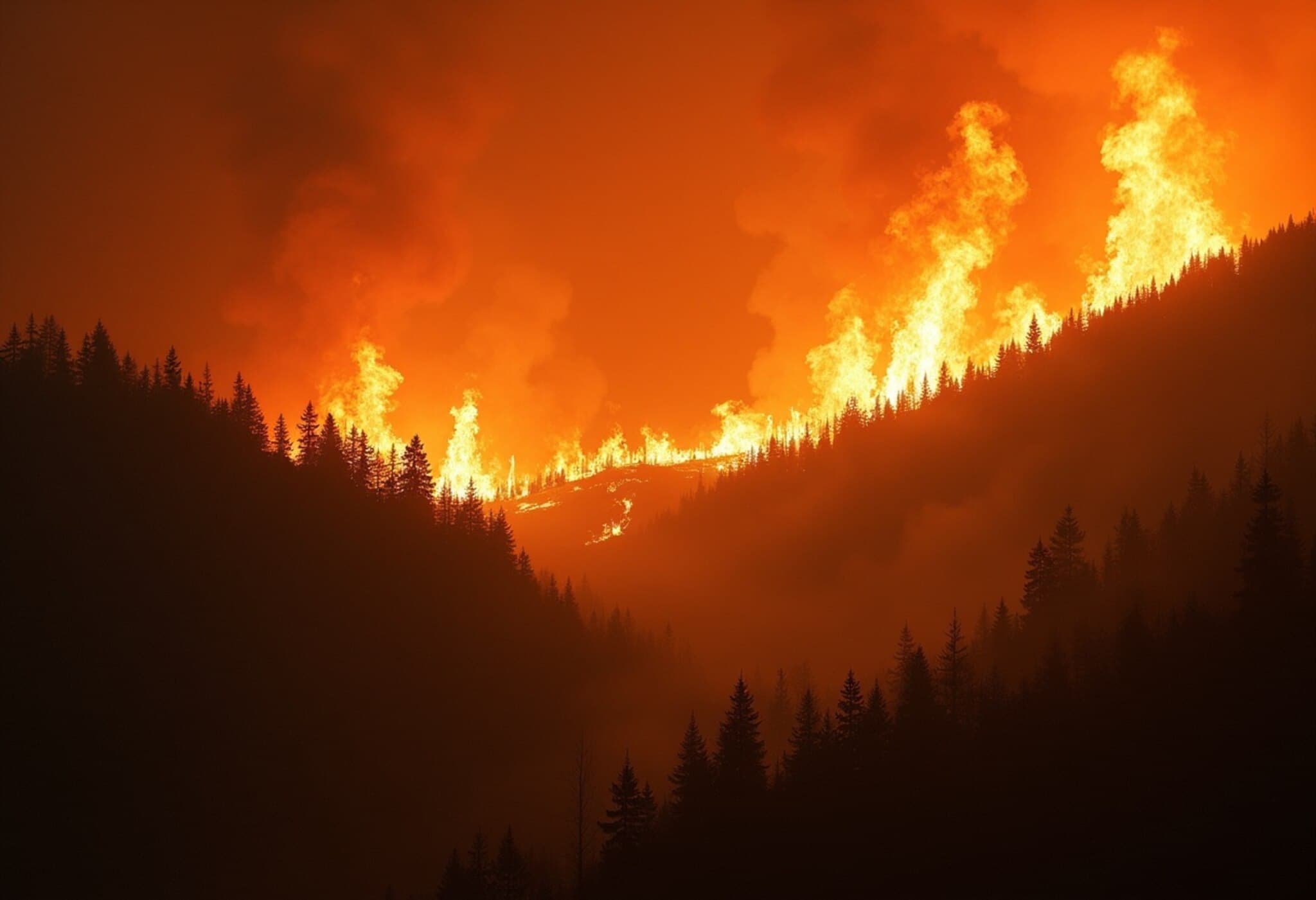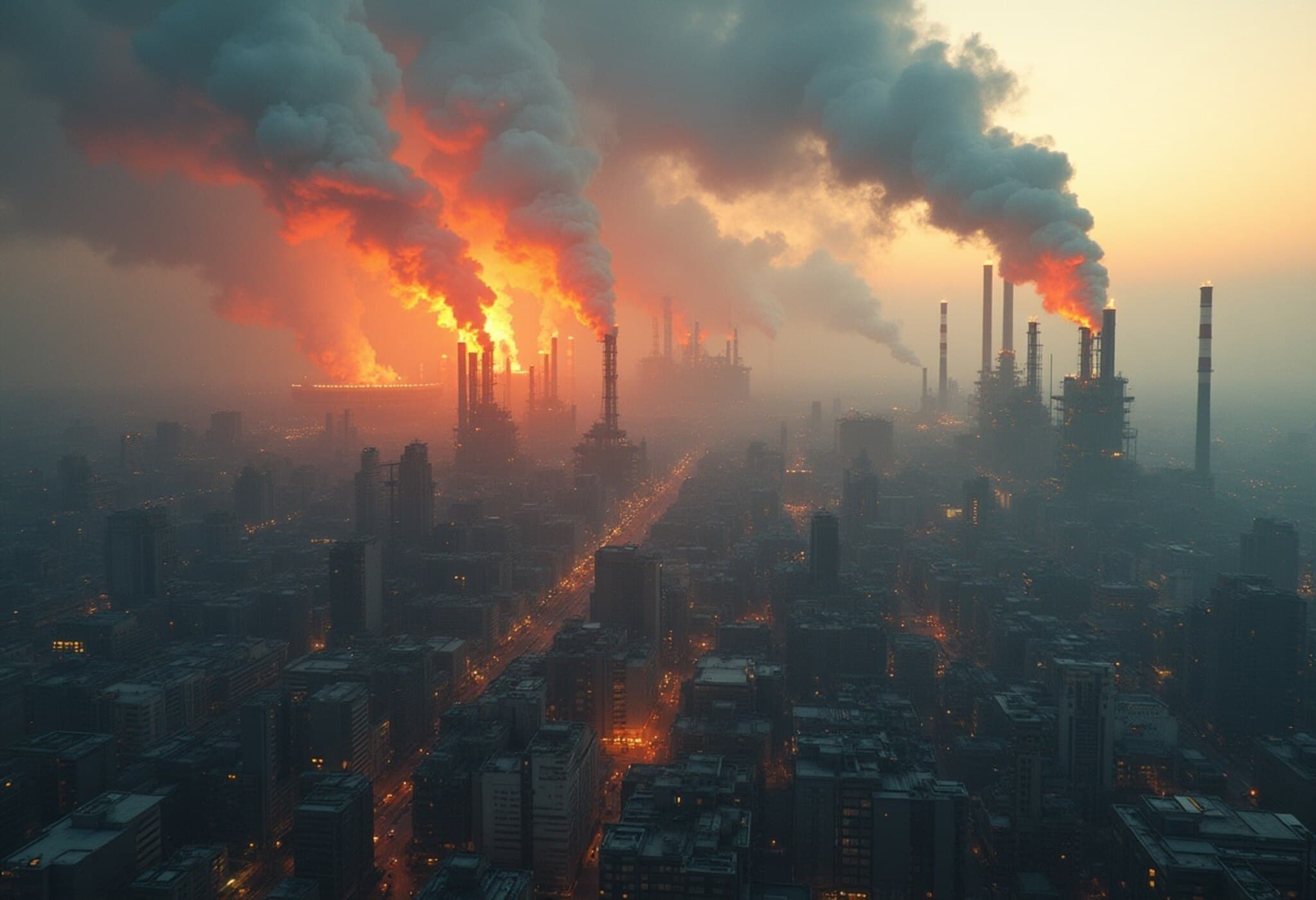Europe Faces Widespread Wildfires Amid Extreme Heatwaves
This summer, southern Europe finds itself under siege as relentless wildfires spread across Italy, France, Spain, Greece, and Turkey. Fueled by a deadly cocktail of soaring temperatures, strong winds, and prolonged drought, these fires have tragically claimed at least three lives and displaced thousands. The escalating disaster underscores not only the immediate human and environmental toll but also the broader implications of unchecked climate change.
Greece: Flames Threaten Communities and Tourists
In the Keratea region, approximately 40 kilometers southeast of Athens, vast swathes of scrubland ignited, menacing nearby residential neighborhoods. Nearly 200 firefighters, supported by aerial water-dropping aircraft, fought to contain the advancing inferno. The situation took a heartbreaking turn on the island of Milos, where two Vietnamese tourists tragically drowned after being swept away by fierce winds at sea. These incidents highlight how climate-driven extreme weather events amplify danger not only on land but also along coastal areas.
France and Spain Battle Escalating Blazes
Across the western frontier, France is grappling with deadly fires in the Aude region that resulted in the death of an elderly resident and left two others severely injured. These rapid blazes are fueled by bone-dry vegetation and gusty winds, underscoring the vulnerability of rural communities.
Meanwhile, Spain’s Cádiz province witnessed flames racing through the popular beach resorts of Torre de la Peña, forcing swift evacuations of multiple hospitality venues. Here, even mild 15 mph winds proved enough to drastically accelerate fire spread, jeopardizing the livelihoods tethered to the tourism sector, a vital part of Spain’s southern economy.
Turkey’s Crisis Deepens: Evacuations and Declared Disaster Zones
Turkey is currently battling daily wildfires, particularly threatening its western provinces, including İzmir and Bilecik, which have officially been designated disaster zones. Fierce blazes around Bursa’s forested mountains cloaked the night sky in ominous red hues, leading to highway closures and evacuations. Additionally, the Dardanelles Strait—an essential maritime corridor—was temporarily shut down due to hazardous smoke, illustrating how wildfires can ripple across other sectors, disrupting commerce and transportation.
More than 3,500 people have been evacuated so far, with two confirmed fatalities, as the nation confronts what experts are calling one of its worst wildfire seasons in recent memory.
Broader Regional Impact: A Warning Sign for Southern Europe
Bulgaria and Montenegro, too, are grappling with intense wildfires as the climate crisis intensifies. The combination of high temperatures and dried-out landscapes is creating a tinderbox in forests and rural areas throughout southern Europe. Experts suggest that these patterns are likely to become the new norm unless significant climate mitigation and adaptation policies are implemented urgently.
Expert Insights: What This Means for Policy and Communities
Wildfire specialist Dr. Elena Kostas from the European Climate Resilience Institute notes, "These events highlight just how critical it is for European governments to re-evaluate current forest management and emergency response frameworks. Climate models have long predicted increased wildfire risk, but the pace and scale we're witnessing exceed many expectations." She emphasizes the importance of cross-border collaboration in firefighting resources and early-warning systems.
Economically, the destruction of tourism assets—from coastal resorts in Spain to cultural sites in Greece—could have lasting impacts on regional economies already grappling with post-pandemic recovery.
Looking Ahead: The Need for Collective Action
The raging wildfires across Europe are a stark reminder that climate change is no longer a distant threat but a present crisis demanding immediate action. Beyond emergency firefighting efforts, there is a pressing need for:
- Investment in resilient infrastructure and effective land management to reduce fuel loads.
- Enhanced community preparedness programs to protect vulnerable populations.
- Robust international cooperation to share technology, expertise, and resources.
As Europe confronts these harsh new realities, these wildfires serve as a timely ultimatum — not just to policymakers, but to every individual aware of our planet’s fragility.
Editor’s Note
While the immediate challenge remains controlling ongoing wildfires, this crisis reveals deeper systemic issues linked to climate change, urban planning, and emergency preparedness. Readers are encouraged to consider how local policies and community behaviors might adapt in a warming world, where prolonged heatwaves and natural disasters due to climate imbalances become increasingly common. How can societies strike a balance between economic growth, environmental stewardship, and human safety? Europe’s current wildfire season may offer lessons with global relevance.

